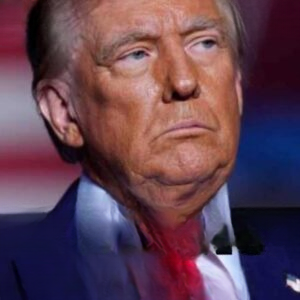In a controversial move aimed at addressing rising concerns over anti-Semitism, former President Donald Trump signed an executive order targeting foreign students involved in politically sensitive activities. The policy has sparked immediate debate, as it authorizes the potential deportation of international students participating in demonstrations perceived as anti-Israel. Critics argue the measure raises significant questions about free speech and civil liberties.
The executive order specifically focuses on campus activism related to the Israeli-Palestinian conflict. Officials suggest it is intended to prevent support for groups that the U.S. classifies as terrorist organizations, including Hamas. Universities nationwide now face scrutiny over how protests and political events are monitored, creating tension between academic freedom and national security priorities.
Under the new guidelines, foreign nationals studying in the U.S. may face visa revocation if their participation in certain protests is deemed to support anti-Israel activities. The policy has triggered concern among students, faculty, and advocacy groups, who worry that this could chill legitimate political expression and debate on college campuses.
Supporters of the order argue that the measure is necessary to ensure that U.S. soil is not used to promote extremist ideologies. They emphasize that international students enjoy privileges granted by their visas and should respect U.S. laws and foreign policy standards. “This is about safety, security, and protecting students from involvement with terrorist-affiliated groups,” one administration spokesperson stated.
Opponents have called the order unprecedented and potentially unconstitutional. Civil rights advocates warn that singling out foreign students for political expression may violate First Amendment protections. University leaders have expressed concern that such measures could damage academic freedom and discourage students from engaging in meaningful dialogue on international issues.
The implications extend beyond higher education. International students contribute significantly to American universities, both culturally and economically. Critics argue that deporting students for participating in protests could harm institutions, reduce diversity, and create an environment of fear and mistrust. Many fear this could have long-term effects on global education partnerships.
Legal experts are weighing in, noting that the executive order could face challenges in court. Questions about the definition of “anti-Israel” activities, how protests are evaluated, and the discretion given to immigration authorities all leave room for legal ambiguity. Several advocacy organizations have already announced plans to monitor the situation closely.
Campus reactions have been swift. Student groups, particularly those advocating for Palestinian rights, have voiced outrage and promised to continue peaceful demonstrations. “We cannot allow fear to silence our voices,” one student leader said. Pro-Israel student organizations, meanwhile, have expressed cautious support for the executive order, seeing it as a protective measure against extremism.
International students have reacted with alarm and uncertainty. Many rely on visas that require them to maintain good standing, and any perceived violation could have immediate consequences. Consulates and embassies are reportedly preparing guidance for affected students, while some are considering legal assistance to navigate the new requirements.
The move also raises questions about the broader balance between national security and individual rights. Scholars argue that defining activism as a deportable offense sets a precedent that could affect future political engagement, particularly for vulnerable populations studying abroad. The debate is likely to continue as universities, lawmakers, and advocacy groups assess the order’s ramifications.
Public discourse surrounding the executive order has been polarized. Media outlets and political commentators are divided, with some praising the initiative as a strong stance against anti-Semitism, and others warning that it undermines democratic principles. Social media platforms have amplified these debates, highlighting stories of students concerned about their academic and personal futures.
As the executive order takes effect, international students and institutions alike face uncertainty. Universities must now navigate compliance while balancing freedom of expression, and students must carefully consider the risks of political activism. The situation underscores ongoing tensions between national security measures and the rights of individuals participating in global conversations on sensitive issues.
